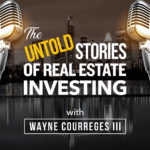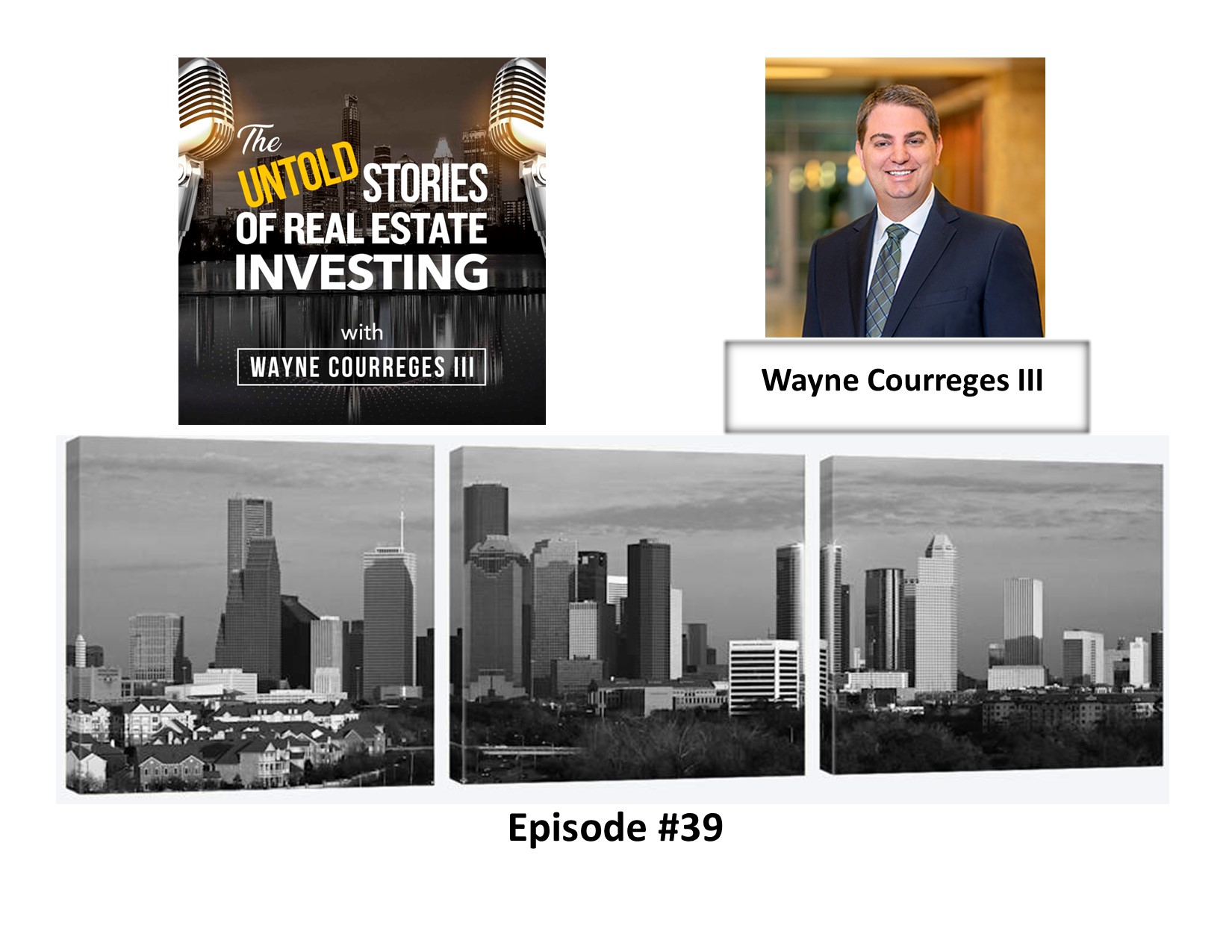
In this episode, the managing principal of CREI Partners, Wayne Courreges III, explains how passive investors should vet real estate Investing deals. Wayne leads the investment lifecycle and investor relations for CREI Partners as the lead sponsor and general partner. For more than 15 years Wayne has worked with a Fortune 150 commercial real estate firm leading property management services of 4.5M+ square feet for both institutional and non-instructional clients over his career. Wayne has worked closely with dozens of real estate professionals executing building strategic plans of over $60M and assisted owners through their investment lifecycle. His background in commercial real estate, passion for leading teams, and desire to increase his investor’s and team’s wealth pushed him to start CREI Partners.
Today, Wayne delves deep into the following topics to help passive investors analyze real estate investment opportunities including:
- What Is Passive Investing?
- Determine Your Risk Tolerance and Investment Goals
- Assessing the Sponsorship Team
- Assessing the Financial Returns
- Assess the Location and Market Demographics
- Assess the Underwriting and Business Plan
- Analyze The Risks
- Review Tax Implications – Open Q & A
Topics on Today’s Episode:
- The Motley Fool definition: Passive real estate investing is when you give someone your money and they do all the work for you. A real estate investment trust (REIT) or real estate partnership where you do not play an active role are good examples. The key point is that a passive investment requires little work on your part.
- Determining your risk tolerance will require that you identify where you fit in the risk versus tolerance spectrum. There are 4 levels to consider-Core, Core-Plus, Value-Add, Opportunistic. Each provides distinct levels of risk/benefit. Core is less risky with more cash flow, but less opportunity for equity growth. Opportunistic is the riskiest with potentially no cash flow, but the highest opportunity for equity growth.
- Are you primarily looking for cash flow or equity growth? Click this link for a brief explanation of the difference. https://www.youtube.com/shorts/3WkyRnc_BBE
- Assessing the partnership team requires that you also know who will be managing the property and executing the business plan.
- Assessing the financial returns. Wayne discusses 3 common deal scenarios and the pros and cons of each. Your goals determine which deal structure makes the most sense for you.
- Important metrics to consider include average annual returns, operation cash flow, equity multiple, and internal rate of return.
- Assessing the market location and demographics. Google can be your best friend in searching out property reviews. Below are some additional tools that can be useful:
- Google Earth https://earth.google.com/web/
- Justice map https://www.justicemap.org/
- FEMA Flood Maps https://www.fema.gov/flood-maps
- Best Places https://www.bestplaces.net/
- Assessing the underwriting and business plan. The Private Placement Memorandum (PPM) could potentially scare many investors, but it details opportunities, risk, compensation, and other data points. Be sure to attend the investor webinar to get a good feel for the location and potential. Having the PPM reviewed by your attorney is always a good idea. It is also great to sit down with the deal sponsor to go over deal assumptions.
- Deals should be looked at as a business. Revenue minus expenses equals income. Do the estimates make sense?
- Having a generous amount of capital reserves can make the deal look less attractive, by the numbers, but it reduces the risk in the case of an unforeseen event.
- Consider tax implications. Real estate investment attracts high-net-worth individuals due to its ability to provide paper losses through depreciation and cost segregation. For a detailed discussion on tax planning check out our previous monthly meetup with Susan Geist.
Links and Resources:
Texas Multi-Family Passive and Active Investors Meetup (Austin, TX) | Meetup
https://www.meetup.com/texas-multi-family-investor-meet-up/
https://www.passiveinvestorcoaching.com


 Subscribe to our newsletter so you never miss out on new investment opportunities, podcasts, blogs, news and events.
Subscribe to our newsletter so you never miss out on new investment opportunities, podcasts, blogs, news and events.